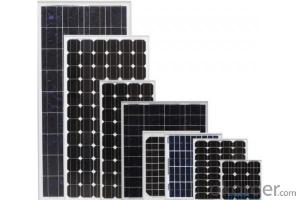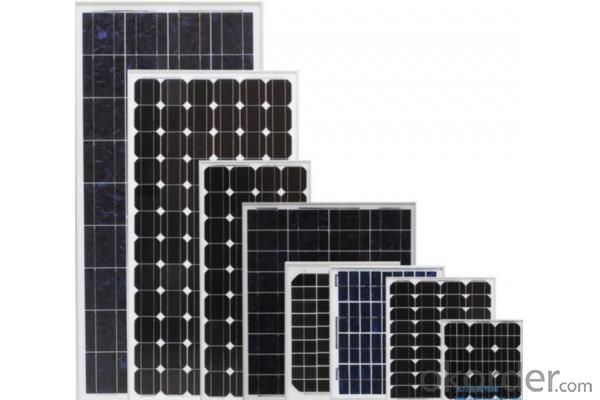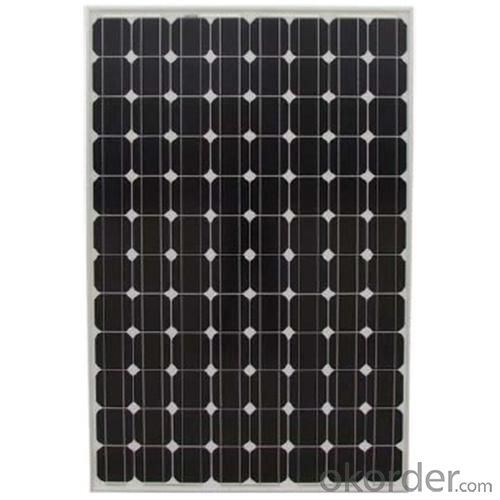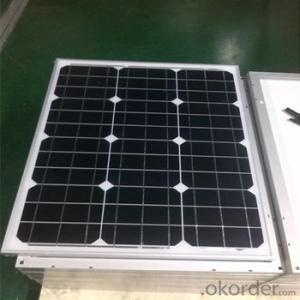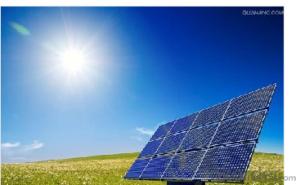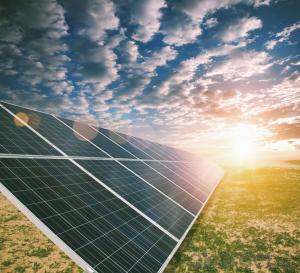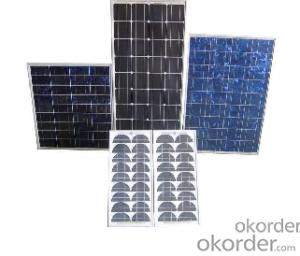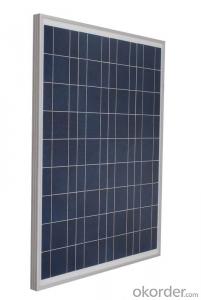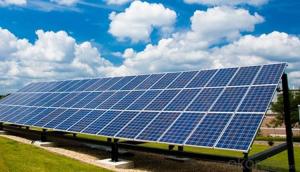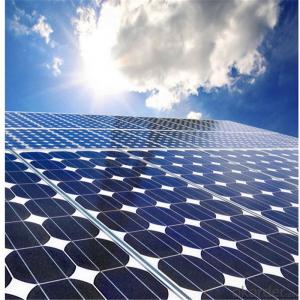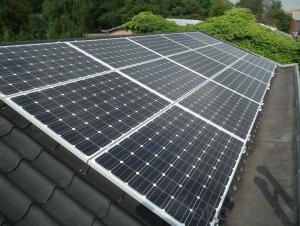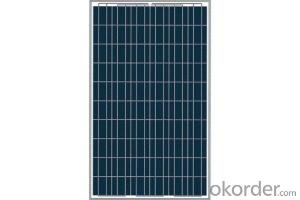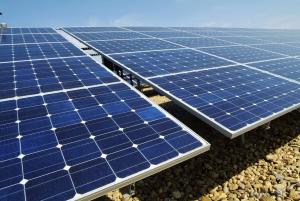70W Poly Solar Module with High Efficiency - Solar Panels Brisbane
- Loading Port:
- Tianjin
- Payment Terms:
- TT OR LC
- Min Order Qty:
- 1 watt
- Supply Capability:
- 100000 watt/month
OKorder Service Pledge
OKorder Financial Service
You Might Also Like
Specification
Product Description:
1.Structure of Solar Module Description
CNBM Solar's photovoltaic module is designed for designed for large electrical power requirement. It is the optimal choice for both on-grid and off-grid power systems. CNBM Solar offers high performance of power per square foot of solar array.
2.Main Features of the Solar Module
Solar Cell: High efficency crystalline solar cell. Even if under the weak light, the solar module can produce maximum power output.
Tempered glass: Anti-reflecting coating and high transmission rate glass increase the power output and mechanical strength of solar module.
EVA and TPT: Using high quality EVA and TPT to prevent destroying and water.
Strong aluminum frames to strengthen the load hold and to stand against high wind.
Junction box: Multi function junction box with water proof.
Long lifetime: ≥25 years; Less power decrease.
Good performance of preventing from atrocious weather such as wind and hails.
Resisting moisture and etching effectively, not effected by geology.
The certificate issued by international authority: UL, TUV, IEC, VDE, CE.
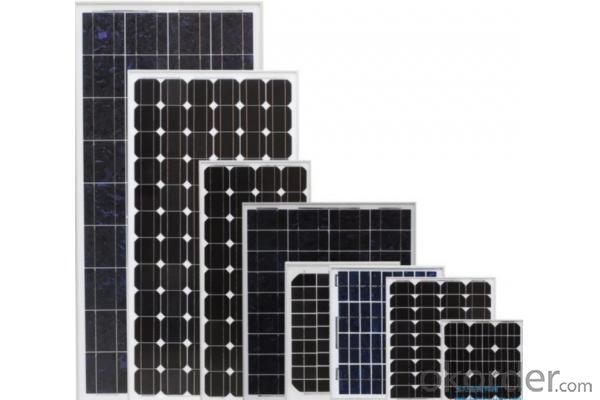
Solar panel working process
In addition to being the ultimate source of all life on earth, the sun is an infinitely renewable, completely pollution-free source of electricity. Instead of burning fossil fuels dug up from the ground in a big power plant – a very 19th century, industrial age approach, when you think about it – solar panels convert sunlight directly into electricity, with no harmful emissions.
The basic unit of a solar panel is a solar cell, which usually consists of one or two layers of silicon-based semiconductor wafers. When struck by the photons in sunlight, the solar cell generates an electrical charge due to the "photovoltaic effect" – which is a pretty good name, since it produces voltage from photons. The flow of these electrons moves in a steady electrical current from one side of the cell to the other.
Dozens of these PV cells are packaged together into solar modules, which in turn are packaged into solar panels that are mounted on a rooftop and arranged to maximize their hours of exposure to direct sunlight. Because the electricity generated by all those solar cells is direct current (DC), it is then sent to an inverter that transforms the power into the same alternating current (AC) used by the appliances in your home and the local utility electricity distribution grid. Increasingly, these inverters are getting "smart," providing data monitoring for solar installation performance and other grid integration services.
- Q: Can solar panels be used in deserts?
- Yes, solar panels can be used in deserts. In fact, deserts are ideal locations for solar panel installations due to the abundance of sunlight and limited cloud cover. The open and flat terrain of deserts allows for efficient placement and alignment of solar panels, maximizing their exposure to sunlight and increasing energy generation. Additionally, the dry desert climate helps in reducing dust and dirt accumulation on the panels, which can improve their efficiency.
- Q: How do solar panels affect the resale value of a home?
- Solar panels can have a positive impact on the resale value of a home. Studies have shown that homes equipped with solar panels tend to sell faster and at a higher price compared to those without. This is mainly because solar panels offer potential buyers the benefit of reduced energy costs and a more sustainable lifestyle. Additionally, the presence of solar panels can enhance the overall appeal and desirability of a property in today's environmentally conscious market.
- Q: my pool guy cleaned the filter and replaced the DE, but now my roof solar panels have started leaking. how do i stop the leak? does backwashing help in any way?
- bypass the whole panel if you can ( one individual panel of several ) , or bypass that loop in that panel - car part rubber hose clamps
- Q: What is the efficiency of solar panels?
- The efficiency of solar panels refers to how effectively they convert sunlight into usable electricity. Generally, the efficiency of solar panels ranges from 15 to 20 percent, with some advanced models achieving efficiencies of up to 23 percent. However, it's important to note that the efficiency can vary depending on various factors such as the type of panel, its age, location, and environmental conditions.
- Q: Can solar panels be installed in areas with high pollution levels?
- Yes, solar panels can be installed in areas with high pollution levels. While pollution can potentially reduce the efficiency of solar panels, they can still generate electricity even in polluted areas. Regular cleaning and maintenance of the panels can help mitigate the impact of pollution and ensure optimal performance. Additionally, installing solar panels can contribute to reducing pollution by promoting the use of clean and renewable energy sources.
- Q: Hi, I am very interested in solar panels and would like to know more.Can someone please give me a basic explanation of how solar panels work?Thank you
- Solar panels are made of many solar cells.solar cell is an electicial device that comverts sun energy directly into electricity by the photovoltaic effect,which is an physic and chemical phenomenon.solar cells are usually connected in series in moodules,creating an additive voltage.
- Q: I am in the market for buying a home. There is one for salke that actually has solar panels on top. How are they used? Do you need to pay for gas and electric still. Does it really light up the house and keep it warm. WHat about the AC keeping hte house cool in the summer does it work for that too? Please explain in solar for dummy terms. I haveno clue about solar panels other thatn the fact that it needs sunlight to run.
- well see a house can totally depend on solar energy (solar panels) but u will still have to pay the electricity bill because if the solar panels dont work u will have a back up,eg like in winters when it snows , it can cover the solar panels or during the winter seson when it is cloudy or snowing the sunlight can not reach the solar panels because of which they can not charge. but on the other hand because of the solar panels the bills will be decresed and u will have to pay only a small amount. I HOPE I WAS HELP FULL
- Q: Can solar panels be used for large-scale power generation?
- Yes, solar panels can definitely be used for large-scale power generation. As technology has advanced, the efficiency and capacity of solar panels have greatly improved, making them a viable option for generating significant amounts of electricity. In fact, many countries and companies are already utilizing solar farms and large-scale installations to harness the power of the sun and contribute to their energy needs.
- Q: Can solar panels be installed on a school or university campus?
- Yes, solar panels can be installed on a school or university campus. Many educational institutions are embracing solar energy as a sustainable and cost-effective solution for their energy needs. Installing solar panels on campus can help reduce electricity costs, lower carbon emissions, and provide educational opportunities for students to learn about renewable energy. Additionally, schools and universities can take advantage of various incentives and grants available for renewable energy projects, making solar panel installation an attractive option.
- Q: I have two solar panels and I have measured that they produce V by themselves. I am trying to generate .5V, but whenever I hook them up in parallel I get something like .02V. What it happening?
- . You want series, not parallel. (Add the voltages. Coonect '+' of the first to '-' of the next, and take your feed from the extreme ends.) 2. if you parallel them and you get less voltage than one alone, you got your polarity crossed up and are reading the difference between them.
Send your message to us
70W Poly Solar Module with High Efficiency - Solar Panels Brisbane
- Loading Port:
- Tianjin
- Payment Terms:
- TT OR LC
- Min Order Qty:
- 1 watt
- Supply Capability:
- 100000 watt/month
OKorder Service Pledge
OKorder Financial Service
Similar products
Hot products
Hot Searches
Related keywords
